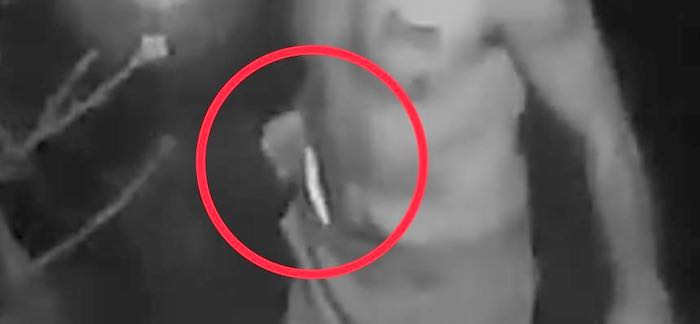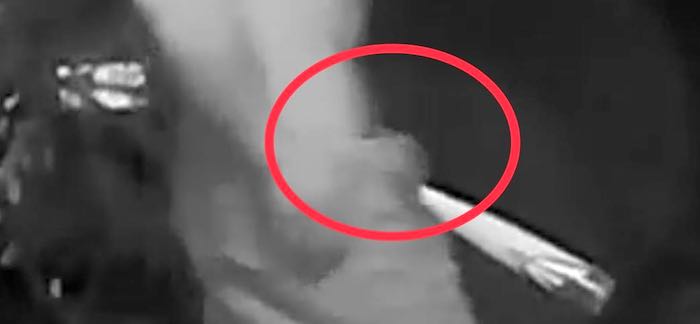Skepticism about “smart home” tech is widespread in prepping circles, and often rationally so — we get that the idea of turning your home into a digital Panopticon full of cameras, microphones, and other sensors connected to distant, faceless, and often untrustworthy corporations (and maybe even governments) creeps some people out.
But we believe there are a few gadgets where the value is worth the possible Big Brother risks. External doorbell cameras are a perfect example.
Just two days ago, one member of our team was woken up by an alert from his doorbell cameras:
Here’s another angle from a different porch camera:
Even though this is a normal, safe suburb, these kinds of risks are real and happen too often. These cameras helped us by:
- Letting us know it happened. This house has two well-trained dogs, but the perp was quiet enough to not spook any of the animals. Without these cameras, we’d never have known this happened.
- Having video we could quickly hand over to law enforcement. When the police arrived, all we had to do was email the officer the clip from our phone. They now have a significantly better chance of helping other neighbors be safe and/or catching this guy.
- Giving us invaluable data to make smarter real-time decisions. We didn’t have to expose ourselves just to understand the basics of what was going on, we could see that if we felt we needed to engage this guy we should treat him as armed (and likely drugged), and so on.
Helpful clues
Just seeing the video makes you feel uneasy. But it’s a perfect example of how a little bit of info can help a prepared person drastically increase their chances of success.
Even in our alarmed and groggy state, we immediately noticed a few things:
- It was raining and in the 40s, yet this guy has his shirt off. Combined with some imbalanced walking, it’s likely he’s high. That’s helpful to know, both for his possible motivation and how we would engage (or not) with him.
- He’s clearly armed with a baseball bat and holding it in a posture that says “I’m ready to use this.” Again, that helps us decide how to react in split-second decisions. Being armed + drugged is a dangerous combo, so rational talking (“hey buddy, let’s calm down!”) probably wouldn’t be worth the risk.
- Since he immediately checked a flower pot near the door, then backed off when he didn’t find anything, we can assume he was looking for a house key. It’s possible he was just tweaked out or looking for drugs, but that data point lead us to think he could swing around the back/sides of the house to continue probing for entry, which influenced how we reacted.
We asked our friends at Quiet Professionals Defense for a frame-by-frame examination. They pointed out even more invaluable “quick takeaways”:
- His right hand is at his waist as he walks up to the house with an odd gait. That’s a common position for a pistol. His pants don’t appear to be so saggy that he has to hold them up.
- He’s holding the bat in his left hand, even though his actions indicate he’s right handed. If someone had two weapons, a bat and a gun/knife, they might hold the bat in the off hand as a blunt object or shield, to create space, etc.
- As he turns, we get glimpses of a shine and bulky object under his waistband. Combined with the above points, that paints a picture that he’s likely armed with something hidden and poised to fight.


As a result of this, the homeowner is installing additional security around the house (such as 3M film that reinforces windows against blunt entry), making sure there are no keys in obvious places (like a pot by the door), and notifying neighbors.
Support companies who support your privacy rights
This camera, Ring, is owned by Amazon. Ring has come under fire for partnering directly with law enforcement to give cops warrantless access to the users’ camera data. A collection of civil rights groups has called on the company to end this practice. “With no oversight and accountability, Amazon’s technology creates a seamless and easily automated experience for police to request and access footage without a warrant, and then store it indefinitely,” the group wrote in an open letter.
We agree that companies should not provide info to governments (or anyone) without a warrant or express permission from the user. The best way to show you want these values without the risk of losing your rights is to vote with your dollars.
For example, the Google alternative — Nest — doesn’t go out of its way to share data with law enforcement. Forbes reports:
It’s clear Nest does hand over information in some cases where it’s asked, but in most it doesn’t. In the first half of 2018, less than 20% of requests received data in return. That’s the lowest proportion of any half year since the Google subsidiary started recording information. Back in the second half of 2015, the proportion was nearly 60%.


You are reporting the comment """ by on